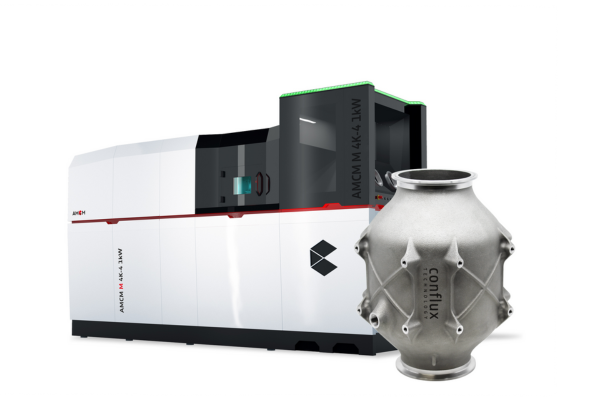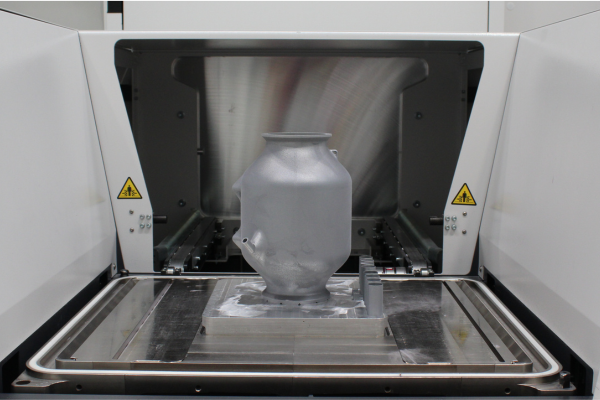AS9100D stands as a premier quality management system (QMS) standard specifically designed for the aviation, space, and defense industry. Developed by the International Aerospace Quality Group (IAQG), it is built upon the foundation of ISO 9001, one of the world’s most widely recognized and implemented QMS standards. The purpose of AS9100D is to address the complex, stringent, and unique demands of aerospace manufacturing, engineering, and service sectors, ensuring safety, reliability, and quality across all facets of aerospace operations.
While ISO 9001 sets out the criteria for a quality management system that can be used by any organization, regardless of its field of activity or industry sector, AS9100D goes a step further by incorporating all of ISO 9001's requirements and adding additional aerospace-specific requirements. This makes AS9100D a more specialized standard that not only meets the broad QMS principles but also addresses the unique operational, quality, and safety concerns inherent in the aerospace industry.
The enhancements introduced in AS9100D over ISO 9001 are comprehensive and multifaceted. They include stringent requirements for the design, development, and production of aerospace products, an intensified focus on risk management, and a greater emphasis on supplier management processes. These additional criteria ensure that aerospace products are manufactured and maintained with the highest level of quality and safety in mind. For instance, AS9100D includes specific provisions for product safety, counterfeit parts prevention, and ethical behavior—areas that are critically important in aerospace but not explicitly addressed in ISO 9001.

Moreover, AS9100D emphasizes the importance of understanding the context of the organization, ensuring that both internal and external issues that could impact the QMS are identified and addressed. This comprehensive approach ensures a more resilient and adaptive quality management system, capable of anticipating and mitigating risks before they impact product quality or safety.
The Universal Appeal of AS9100D Standards
The AS9100D standard, while specifically designed for the aerospace industry, offers comprehensive quality management principles that are universally applicable across industries where quality, safety, and reliability are paramount. The AS9100D certification extends beyond a mere compliance badge; it symbolizes a manufacturer's commitment to upholding the highest quality and safety standards. This certification means engaging with suppliers whose processes and services adhere to stringent regulatory and safety requirements, a non-negotiable factor in aerospace and other high-stakes industries.

Working with a supplier that is AS9100D compliant provides numerous benefits, reflecting the comprehensive nature of this quality management system standard including:
Enhanced Product Quality and Safety:
AS9100D's stringent quality and safety standards ensure that supplier’s processes are conducive to manufacturing products with high levels of reliability and performance, crucial in industries where failure can have severe consequences.
Regulatory Compliance and Risk Management:
Suppliers compliant with AS9100D adhere to a QMS that meets, and often exceeds, regulatory requirements, facilitating smoother certification processes and market access for aerospace products. AS9100D emphasizes risk identification, assessment, and mitigation throughout the supply chain, enhancing the overall safety and reliability of aerospace products.
Increased Efficiency and Innovation:
By working with AS9100D compliant suppliers, customers can benefit from more efficient operations and reduced costs due to the standard's focus on continual improvement and error reduction. In addition, continuous improvement often translates into suppliers keeping abreast of technological advancements and providing innovative solutions and state-of-the-art products for customers.
Competitive Advantage:
Sourcing from AS9100D compliant suppliers can provide a competitive advantage by associating their products with the highest standards of quality and reliability.
Customers can have peace of mind knowing that AS9100D compliant suppliers are committed to the highest standards of quality management, safety, and continuous improvement.
Implementing AS9100D Standards in Heat Exchanger Manufacturing
Heat exchangers play a pivotal role in enhancing the functionality of various cutting-edge technologies. From rocket engines and high-performance vehicles to hydrogen-powered trucks and electric cars, the efficiency and performance of these innovations heavily rely on the effectiveness of heat exchange processes.

The application of AS9100D standards in heat exchanger manufacturing at Conflux is a testament to the company’s dedication to quality, safety, and customer satisfaction. By embedding AS9100D standards into every facet of the manufacturing process, from design and development to production, testing, and continuous improvement, Conflux not only meets the high expectations of their customers but also sets a benchmark for excellence in heat exchanger manufacturing.
"The comprehensive nature of AS9100D certification requires a team effort. It’s a testament to Conflux’s collective commitment to quality that impacts not just what they produce but how they think about product safety, efficiency, and customer satisfaction," shares Andrew Milner, Quality Manager for Conflux Technology.
This commitment ensures that Conflux remains at the forefront of innovation, delivering heat transfer products that are synonymous with reliability, performance, and safety. The certification impacts several key areas:
Design and Development
Conflux places a significant emphasis on integrating AS9100D standards into the design and development phase of heat exchangers. This begins with a rigorous assessment of customer needs and regulatory requirements to ensure that every product meets or exceeds the stringent demands of the selected thermal application.

Design for Additive Manufacturing (DfAM)
AS9100D mandates a comprehensive approach to design, factoring in risk management, product safety, and performance reliability from the outset. By leveraging these guidelines, Conflux can innovate while ensuring that each design iteration adheres to the highest safety and quality standards. This is achieved through a robust internal design review process and calorimetric testing of new products to validate performance under various conditions.
Procurement and Materials Handling
The sourcing of materials and components is critical in heat exchanger manufacturing. Conflux rigorously applies AS9100D standards to its supplier selection and materials handling processes. This ensures not only the high quality of raw materials but also the traceability of these materials throughout the supply chain.
In addition, Conflux has established internal processes to prevent the procurement of counterfeit material; including the training of relevant personnel and evaluation of critical raw materials upon receipt. A counterfeit part is officially defined as any unauthorised copy, imitation, substitute or modified part that is knowingly misrepresented as a specified genuine part of an OEM or authorised manufacturer.

Depowdering of AM heat exchanger
AS9100D's emphasis on supplier management compels Conflux to work only with vendors who can consistently meet these stringent requirements, ensuring the integrity of the supply chain and the final product.
Production and Quality Control
In the production phase, AS9100D's influence is evident in Conflux’s meticulous quality control and adherence to specified manufacturing processes. The standard requires detailed documentation and validation of each step in the production process, from initial printing to final testing. This disciplined approach minimizes variability, enhances repeatability, and ensures that each heat exchanger meets the exacting specifications and quality expectations of all customers.
The AS 9100 Revision D standard also contains numerous additional requirements specific to the Aerospace, Space and Defence industries called Special Processes. A special process is a process whereby the resulting output cannot be verified by subsequent monitoring or measurement. For additive manufacturing processes, Conflux achieves this through periodic quality control jobs to ensure accurate laser calibration and energy deposition. Mechanical testing is utilized to assess the tensile strength and elongation properties of finished material. Conflux has also established provisions for detecting and preventing FOD (Foreign Object Debris) through advanced in-process inspection, including use of microscopic imaging technology.

Printing in a Laser Powder Bed Fusion machine
For series production parts, a first article inspection process in-line with AS9100D requirements for production process verification has been established to ensure that the production process is consistently capable of meeting design outputs.
Testing and Continuous Improvement
Testing is a cornerstone of Conflux’s commitment to quality. AS9100D requires rigorous testing of products to ensure they meet all functional, safety, and regulatory standards. Conflux conducts extensive performance and durability tests on its heat exchangers, simulating various operational conditions to guarantee that they perform reliably under the most demanding circumstances.

Testing is critical in heat exchanger manufacturing
Beyond immediate testing, AS9100D also instills a culture of continuous improvement at Conflux. Feedback loops from testing, customer feedback, and internal audits contribute to ongoing enhancements in design, manufacturing processes, and product performance.
Training and Competence
AS9100D places a strong emphasis on the competence of personnel involved in all stages of the manufacturing process. At Conflux, this translates into comprehensive training programs that ensure all team members are versed in AS9100D standards and their application within their specific roles, including the importance of ethical behavior. This focus on training and competence is critical to maintaining the high standards of quality, safety and integrity that AS9100D demands.

Continuous training on quality management system
Setting the global standard for heat exchanger excellence
The comprehensive approach of AS9100D’s standards for quality management, risk mitigation, and customer satisfaction is beneficial not just to the aerospace industry but also to any industry focused on enhancing product quality, reliability, and safety.
The principles of continuous improvement, risk management, and operational control embedded in AS9100D ensure that Conflux offers a universal benchmark of quality and safety for all its customers.
"The rigor of AS9100D compliance means that every heat exchanger we produce has undergone stringent quality checks and performance validations. Our customers in aerospace and beyond trust us to deliver products that are not only reliable but also at the cutting edge of thermal management technology," says Michael Fuller, CEO and Founder of Conflux Technology.
Conflux’s commitment to quality and innovation fostered by AS9100D compliance positions itself to meet the evolving needs of its customers, providing a competitive edge in a demanding global market. Ultimately, heat exchangers manufactured within a AS9100D compliant and certified facility represent a pinnacle of manufacturing excellence, offering assurance that extends well beyond the aerospace industry to benefit a wide array of sectors seeking superior thermal management solutions.
Read more: Conflux Technology achieves AS9100D Certification for Design and Production






